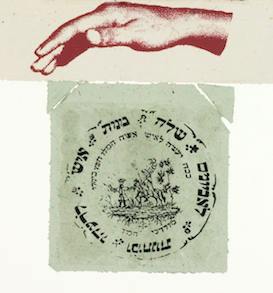The Contextuality of Jewish Literature: the Voices of Exile and Diaspora
DOI:
https://doi.org/10.17851/1982-3053.11.20.68-89Keywords:
Jewish History, Identity, WanderingAbstract
This article analyzes the Jewish history that has its origin marked by an irreversible act of rupture determining its identity profile. Abraham, the founding patriarch, detaches himself from his past to follow the “call” that establishes a new relationship “man / divinity” having as normative principle the existence of a single god in counterpart to the polytheistic cult of his paternal house. Two aspects marked the foundation of the new becoming: the principle of monotheism and the inaugural wandering in search of the divinely promised land: Canaan.
Downloads
References
AVINERI, Slomo. The Making of Modern Zionism: the Intellectual Origins of the Jewish State. Jerusalem: The Hebrew University, 1991.
CHALIAND, G.; REGEAU, Jean-Pierre. Atlas des Diasporas. Paris: Editions Odile Jacob, 1991.
SAFRAM, W. Diasporas in Modern Societies: Myths of Homelaud e and Return. Diaspora, v. 1, n. 1, 1991.
HADDAD, Gerard. O filho ilegítimo: as fontes talmúdicas da psicanálise. Trad. David Bogomoletz. Rio de Janeiro: Imago, 1992.
HESCHEL, Abraham J. The Prophets. 2 v. p. 87. New York: Hapers & Row, 1975.
SCHOLEM, Gershon. The Messianic Idea in Judaism. New York: Schocken Books, 1995.
SELTZER, Robert M. Pensamento judaico: a experiência judaica na História. Trad. Elias Davidovich. Rio de Janeiro: Koogan Ed., 1990.
Downloads
Published
How to Cite
Issue
Section
License
Os direitos autorais pertencem exclusivamente aos autores. Os direitos de licenciamento utilizados pelo periódico é a licença Creative Commons Attribution 4.0 (CC BY 4.0): são permitidos o compartilhamento (cópia e distribuição do material em qualquer meio ou formato) e adaptação (remix, transformação e criação de material a partir do conteúdo assim licenciado para quaisquer fins, inclusive comerciais.






